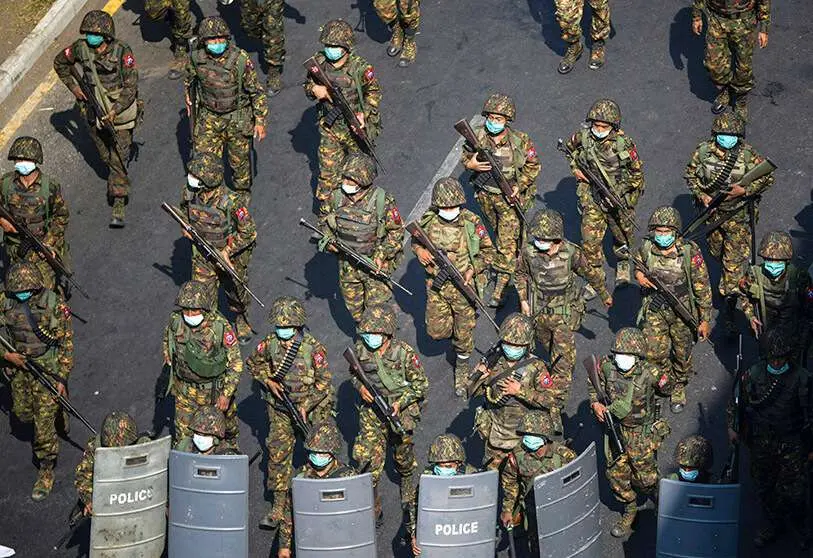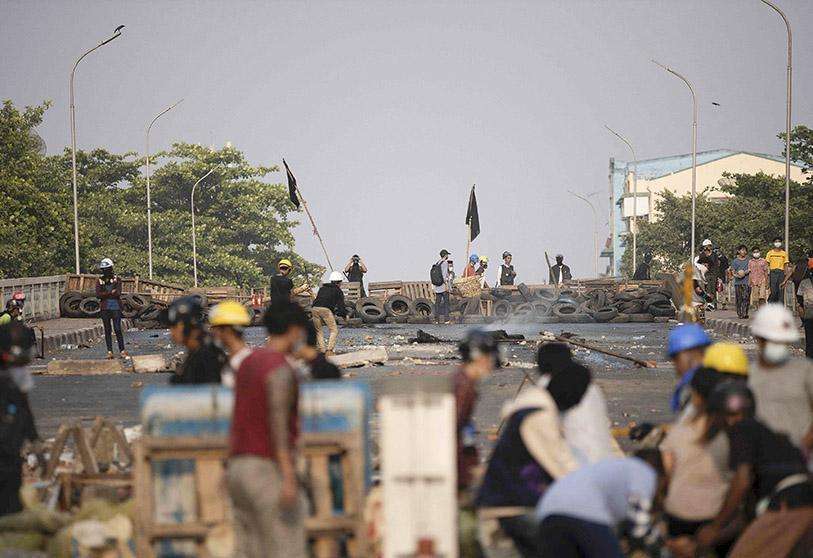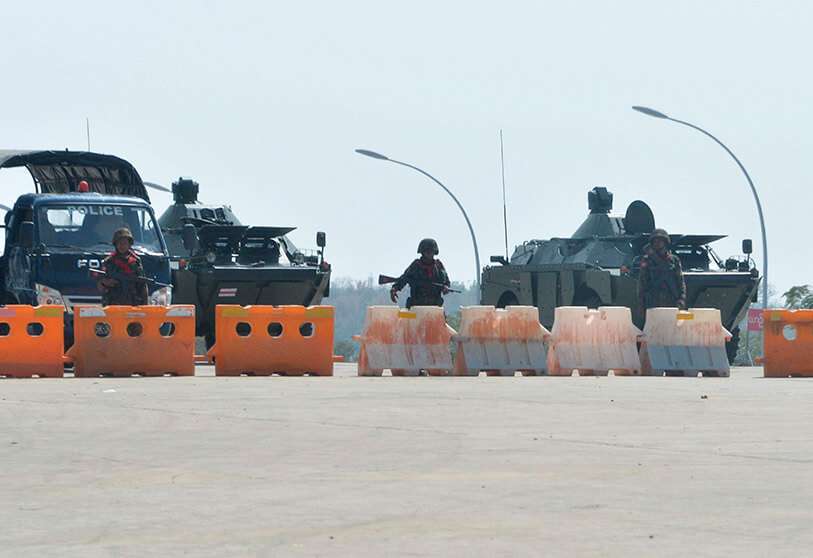UN warns about the situation in Myanmar six months after the coup d'état

On the morning of 1 February, the Tatmadaw (Myanmar Army) began arresting members of the National League for Democracy (NLD), the country's ruling party. NLD leader and State Counsellor Aung San Suu Kyi and Chairman Win Myint were among the first to be arrested along with other ministers and MPs.
The coup, led by the military's Min Aung Hlaing, was justified by alleged election fraud and occurred the day before members of the national parliament were sworn in. Hlaing then seized power and declared a state of emergency in the country. As a result, thousands of people took to the streets to show their rejection of the coup. The protests were met with a violent crackdown by the security forces, leaving dozens dead, thousands injured and arrested.
Myanmar's social landscape does not seem to be improving since the mass demonstrations. Despite restrictions imposed by the military government, abuses against the population have continued during this time. The NGO Human Rights Watch has described these actions as "crimes against humanity".

"Myanmar's military junta has responded to mass popular opposition to the coup with killings, torture and arbitrary arrests of people who simply want the results of last year's elections to be respected and a government that reflects the will of the people," says Bad Adams, the organisation's Asia director.
Six months after the events, the outlook in Myanmar remains critical. "The situation in the country is now characterised by instability and a deteriorating socio-economic and security situation," says Ramanathan Balakrishnan, UN coordinator in Myanmar. Balakrishnan also adds the serious health situation due to the third wave of the coronavirus pandemic. "As for Myanmar's health system, it is facing extreme pressure due to the coronavirus crisis, as well as attacks on medical staff and facilities in Myanmar, and a civil disobedience movement by some health professionals," adds the organisation.

The UN warns that "in several ethnic minority areas", such as the Shan, Chin and Kachin regions, more than 200,000 people have been displaced from their homes. The military commander-in-chief, Hlaing, has received international condemnation and sanctions for his alleged role in military attacks against ethnic minorities. Hlaing, in particular, is linked to ethnic cleansing against the Rohingya, a Muslim group that was mostly concentrated in Rakhine, northern Myanmar. From 2017 onwards, this community began to be subjected to persecution and forced displacement. Many of them moved to neighbouring Bangladesh, although others remained in the country and became internally displaced.
The UN drew up a Humanitarian Response Plan before the coup, noting that around one million people, including internal refugees, were in need of urgent humanitarian assistance. Months later, the number of vulnerable people "has only increased". "After the coup, another two million were identified as people in urgent need of humanitarian assistance, largely in the urban areas of Yangon and Mandalay," Balakrishnan explains.

The international organisation also warns of the hunger that can be caused by rising commodity prices. This has caused, as Balakrishnan points out, "a reduction in the nutritional value of the food basket that people usually take as they replace their usual food with cheaper and more readily available items". Other international institutions have provided more critical data on Myanmar and its economic situation. The World Bank has estimated that 5 per cent of the working population will lose their jobs and that the number of people living in poverty will double by 2022.








